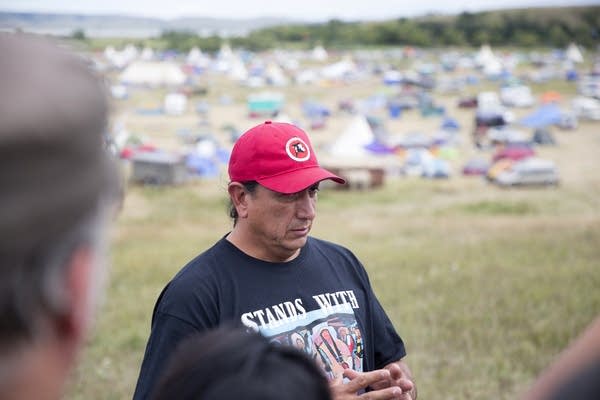With camp set to close, protesters resolve to fight Dakota Access Pipeline

In this Sept. 8, 2016 file photo Standing Rock Tribal Chairman Dave Archambault spoke to the media.
Christopher Mark Juhn for MPR News File
Go Deeper.
Create an account or log in to save stories.
Like this?
Thanks for liking this story! We have added it to a list of your favorite stories.


